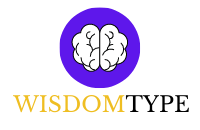For best serving their target audience, businesses are focusing on building long-term relationships. They are continuously analyzing their needs and demands to devise their target marketing strategy. A large number of companies utilize demographic segmentation to draft a sound marketing strategy. Even though segmentation is crucial, it must be noted that it only serves as an external factor, failing to provide any clear insight into the consumers’ decision making behavior.
Lately, a new methodology is applied for personality classification to fully understand consumers’ needs. The enneagram personality profiling system evaluates your customers and classifies them according to psychographic segmentation as well as market segmentation. Your business can use their marketing people to classify your customers accordingly. This model essentially classifies nine different types of personalities as follows:
Type 1: Reformer
Reformers are perfectionists, self-controlled and purposeful. They like to stick to their rules and standards. Believing in high quality standards, the products these customers buy have to be up-to-the-mark for impressing him. For targeting these customers, your products and branding has to be top-notch.
Type 2: Mentor
This customer is intrusive and big-hearted. For selling your products to mentors, use cajoling and flatter them with personalized messages. A little effort can go a long way to convert mentors into customers.
Type 3: Achiever
Type-3 customers are image-conscious and flexible. As they like to take care of their image, they also like to brag about it. Woo these customers with special offers and discounts.
Type 4: Designer
Designers are categorized as individualistic, intuitive unpredictable and expressive. They love all things that are beautiful. For finalizing a deal with them, take care of your services and products, from packaging to delivery. They are good observers and will spot any flaws in your product quite easily.
Type 5: Investigator
These customers believe they are insightful, detached and innovative. They don’t spend money recklessly and are happy to avail free giveaways. Any services or products that come with warranties and guarantees are appreciated by them.
Type 6: Troubleshooter
These customers are characterized as suspicious, dependable, and anxious, and rely on safety features as well as technicalities. When dealing with them, be transparent and highlight the selling points of your product.
Type 7: Enthusiast
Enthusiasts are easy to deal with. Being spontaneous, versatile and verbose, they are often less focused. Owing to their short attention span and a positive approach towards life, they can be attracted by something fun and exciting.
Type 8: Challenger
Challengers are self-confident, willful and decisive. They don’t like exaggeration, so stick to the point and be as straightforward as possible when selling to them.
Type 9: Peacemaker
Peacemakers are reassuring, calm and agreeable. As you deal with these customers, demonstrate patience as they need some time before they buy anything. They like to stay away from problems so highlight all the comforting features of your services and products.
The enneagram is a cost-effective and powerful strategy that has been helping businesses dramatically improve their sales. Apart from other market segmentation techniques, the enneagram is convenient to use and classify your customers with perfection.
